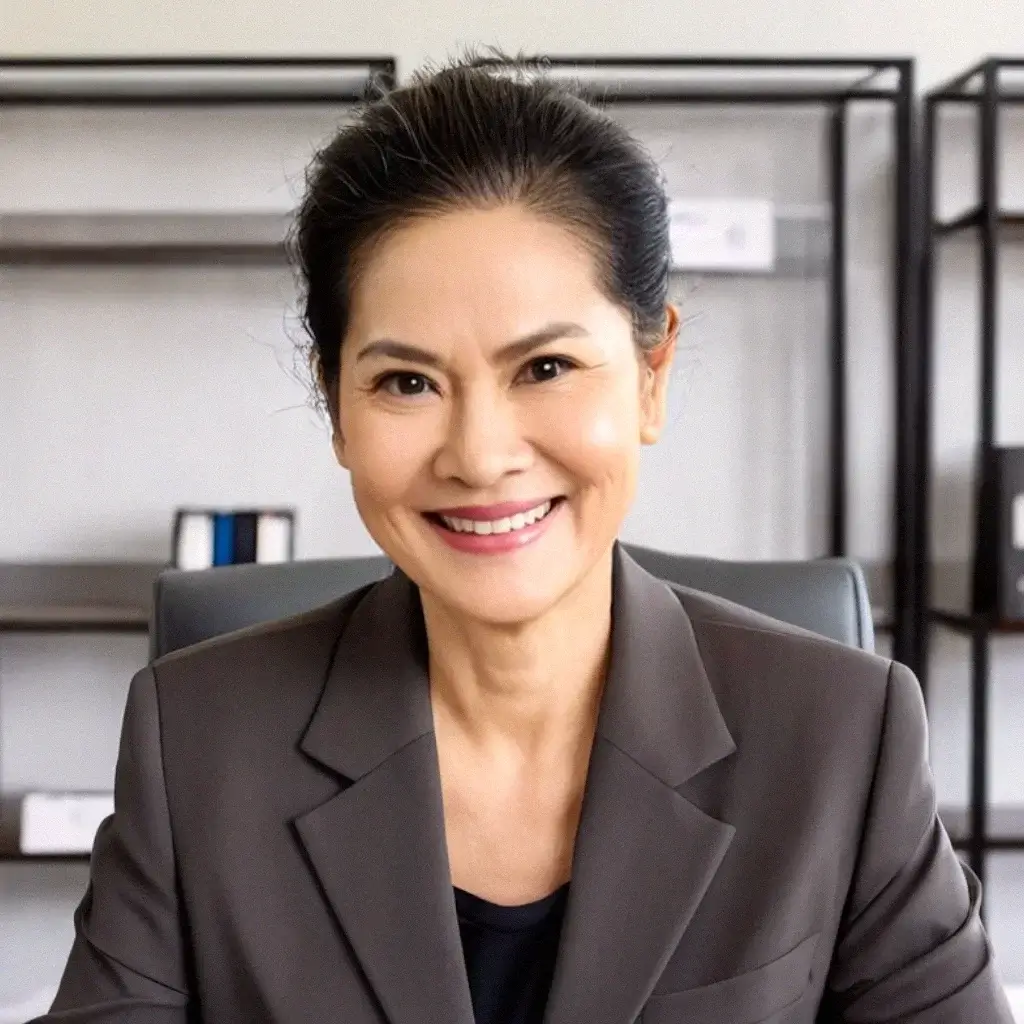Learn more about Litigation
Thai law is mainly based on the legal systems of Western Europe with a codified law but also holding a certain imprint of the “Common Law” of the Anglo-Saxon countries, in particular with the influence of the decisions of the Supreme Court which play an important role in the interpretation of the law by the courts of first authority. Litigation therefore arises when there is a dispute or a violation of the rules of law between two or more persons. Depending on the nature, circumstances and the person, the case must be brought before the court that has both material and territorial jurisdiction. Thus as soon as there is a conflict, it is essential to address itself to the good court to assert its rights.
Table of contents
How is justice organized in Thailand?
The courts are responsible for adjudicating and adjudicating cases. The constitution specifically provides for four types of courts: the constitutional court, courts of justice, administrative courts and military courts.
Constitutional Court
The Constitutional Court consists of eight members, who are appointed by the King on the advice of the Senate, and who serve for a term of nine years. The members of the Constitutional Court consist of three judges of the Supreme Court of Justice, elected by the general assembly of the Supreme Court of Justice, two judges of the Supreme Administrative Court, elected at a general assembly of the Supreme Administrative Court, and four persons (two experts in the field of law and two experts in a field of social sciences) appointed by a selection committee and approved either by a two-thirds vote of the Senate or, if not approved by the Senate, by the unanimous vote of a selection committee. The judges of the Constitutional Court elect one of their number to be the Chief Justice of the Constitutional Court. The Constitutional Court has an independent secretariat, autonomous in personnel administration, budgeting and other activities.
The Constitutional Court is competent to determine whether the provisions of any law, rule or regulation are contrary to or inconsistent with the Constitution. Decisions of the Constitutional Court may not be appealed to any other court.
Administrative courts
Administrative litigation is any dispute between the administration and an individual or any dispute within the administration itself concerning any act or decision issued by the administration.
Administrative courts have jurisdiction to hear and decide cases between a government entity or official and an individual or another government entity or official. These cases must be a consequence of the exercise of an administrative power under the law or a consequence of the prosecution of an administrative act by a government entity or official. Administrative tribunals have an independent secretariat that is autonomous in personnel administration, budgeting and other activities.
Military courts
Military courts are competent to try and adjudicate criminal cases against persons under the jurisdiction of military courts. It is not necessarily necessary for the accused to be a member of the Thai military to have a case before the military courts of Thailand. It depends on the charges against the defendant. For example, charges related to explosives, bombs and other such items may be classified as a military case and brought before the military court. Charges relating to weapons, particularly the possession, importation or sale of weapons considered to be military grade weapons, fall within the jurisdiction of the military court.
Courts of Justice
The courts of justice are classified into three levels, namely the courts of first instance, the courts of appeal and the Supreme Court. They have developed efficiency in handling cases in four ways, namely increasing the number of courts, creating new divisions and branches of courts, creating specialized courts, and making efforts to promote alternative dispute resolution.
Trial Courts
Within the courts of first instance, a distinction must be made between the different types of courts: general, family and children’s, municipal and specialized for particular cases.
Courts of general jurisdiction
General courts are ordinary courts that have the power to try and decide criminal and civil cases. These courts are the Civil Courts, the Criminal Courts, the Provincial Courts and the Municipal Courts (Kwaeng Courts). In the general courts, with the exception of the municipal courts, at least two judges constitute a quorum to hear any case. Judgments may be appealed depending on the circumstances of the decision.
Municipal courts for smaller cases
There are 5 municipal courts in Bangkok Metropolis: Bangkok North Municipal Court, Bangkok South Municipal Court, Thon Buri Municipal Court, Dusit Municipal Court and Pathumwan Municipal Court. The main function of the Municipal Courts is to settle small cases quickly with a minimum of formality and expense. The jurisdiction of these courts covers both criminal and civil cases. Criminal cases under its jurisdiction must involve a criminal offense punishable by up to three years imprisonment or a fine not exceeding 60,000 baht, or both. For civil cases, the amount of claims shall not exceed 300,000 baht. The procedure in the Municipal Courts is focused on speedy trial; therefore, the trial is simpler and an oral judgment or summary judgment can be given.
Juvenile and Family Court
The Juvenile and Family Courts consist of the Central Juvenile and Family Court, the Provincial Juvenile and Family Courts, the Juvenile and Family Divisions. Two professional judges and two lay judges, one of whom must be a woman, constitute a quorum of the Juvenile and Family Courts. An appeal from a judgment or order of the juvenile and family courts shall be taken to the courts of appeals. This court has jurisdiction to deal with any matter or offence relating to juveniles and family law.
Specialized Courts
There are four specialized courts in Thailand, namely the Tax Court, the Intellectual Property and International Trade Court, the Bankruptcy Court and the equivalent of the Industrial Tribunal. The establishment of the specialized courts is intended to ensure that specific or technical problems are resolved by appropriate and competent judges. A judge of the specialized courts is appointed from among judges who have competent knowledge of the specific issues. The quorum of two specialized courts, namely the Court of Intellectual Property and International Trade and the Industrial Tribunals, consists of professional and lay judges. The lay judges are lay persons recruited separately to work with the professional judges in considering cases. Appeals from the judgments or orders of certain specialized courts must be made directly to the Supreme Court, where several specialized divisions have been established to deal specifically with such cases, namely the Labor Division, the Intellectual Property and International Trade Division, the Tax Division and the Bankruptcy Division of the Supreme Court.
The Courts of Appeal
The Courts of Appeal are composed of the Court of Appeals and nine regional courts of appeal. Most of the regional courts of appeal are located in Bangkok. The Court of Appeal deals with appeals against judgments or orders of the civil and criminal courts made at first instance. The Court of Appeal allows for a retrial of a case on both the facts and the applicable rule of law. Regional Courts of Appeal handle appeals against judgments or orders of other courts of first instance located in their region. Each Court of Appeal is headed by the President of the Court, assisted by the Vice-Presidents of the Court. A quorum shall consist of at least three judges per court. Each Court of Appeals has a Research Justice Division composed of research judges. The primary function of the Division is to assist the judges of the Courts of Appeals by reviewing all relevant factual and legal issues of the cases, conducting legal research, and conferring with those judges to ensure consistency and fairness of results.
The Supreme Court
The Supreme Court is the final court of appeal for all civil and criminal cases throughout the Kingdom. Its decisions are not subject to appeal.
The Court consists of the President, up to six Vice-Presidents, the Secretary and a number of judges. The President of the Supreme Court is also the head of the courts of justice. In the current system of courts of justice, the Chief Justice sits at the top of the judicial and administrative structures. Like the courts of appeal, the Supreme Court also has a research justice division composed of research judges. At least three justices of the Supreme Court form a quorum. The Court may, however, sit in plenary session to decide cases of exceptional importance and cases in which there is reason to reconsider or overturn its own precedents.
It also has exclusive jurisdiction to judge the commission of a misdemeanor or felony by any politician. This includes the Prime Minister, a minister, a member of the House of Representatives, a senator or any other politician to be accused of being exceptionally wealthy, committing a crime in the performance of his duties in accordance with the Penal Code, performing dishonest duties or being corrupt in accordance with other laws.
What is a civil case?
A civil case is a private matter in which one person sues another. This is called a lawsuit or action. This is the case of unsettled disputes concerning the rights of the individual in general. An example is a complaint requiring the borrower and guarantor to perform their obligations under the loan and bond agreement, or a request to evict a tenant from the rented premises for non-payment of rent. It is intended to compel the defendant to perform its obligation, to take or refrain from taking certain actions for the benefit of the plaintiff, or to impose a monetary penalty on the defendant’s property, such as a fine or forfeiture of property. However, there will be no penalty such as imprisonment in a civil case. The civil courts are competent to settle disputes between private persons regarding various problems: housing, neighborhood disputes, divorce, labor, contracts… Some are specialized. They do not impose prison sentences or fines, but can decide on measures such as financial compensation. The judge may require the parties at any stage of the proceedings to meet with a mediator that he or she designates.
How do you determine which court is materially competent to judge your dispute?
The organization of the Thai judicial system has already been described. There are different specialized courts according to the subject matter of the dispute and courts with jurisdiction according to the amount of the dispute. With regard to these two criteria, it is advisable to check each time and before seizing a jurisdiction to check first the nature and the object of the dispute. Thus, if the dispute concerns an employment contract, the competent court is the court specialized in labor law. It is therefore advisable to first check whether a specialized court exists and then to address your case to the court that is materially competent. If there is no specific court, you should check the amount of the dispute in question in order to address the case to the competent court.
How to determine the competent court to judge your dispute?
Under Thai law, the plaintiff must bring a civil case to the court with territorial jurisdiction. It is not possible to bring your case before any court in Thailand. You must file your lawsuit in the court of the defendant’s domicile. In the case of real estate, the plaintiff must bring the case to the court where the property is located or where the defendant is domiciled. The territorial jurisdiction varies according to the subject matter of the dispute or contract.
What documents do I need to prepare for an action before the civil courts?
The documents necessary to prepare for filing a civil case are the following:
| ➤ Documents that are related to the source of obligations, for example, a written contract, notices for the performance of debts |
| ➤ Authority of counsel, where a party appoints an agent to act on its behalf |
| ➤ Details of the amount of the debt and interest to be paid |
| ➤ Appointment of counsel |
| ➤ Household registration or certification of registration of the defendant's personal information |
| ➤ Affidavits, obtained from the Department of Business Development for corporate cases |
| ➤ Other related evidence in connection with the case |




